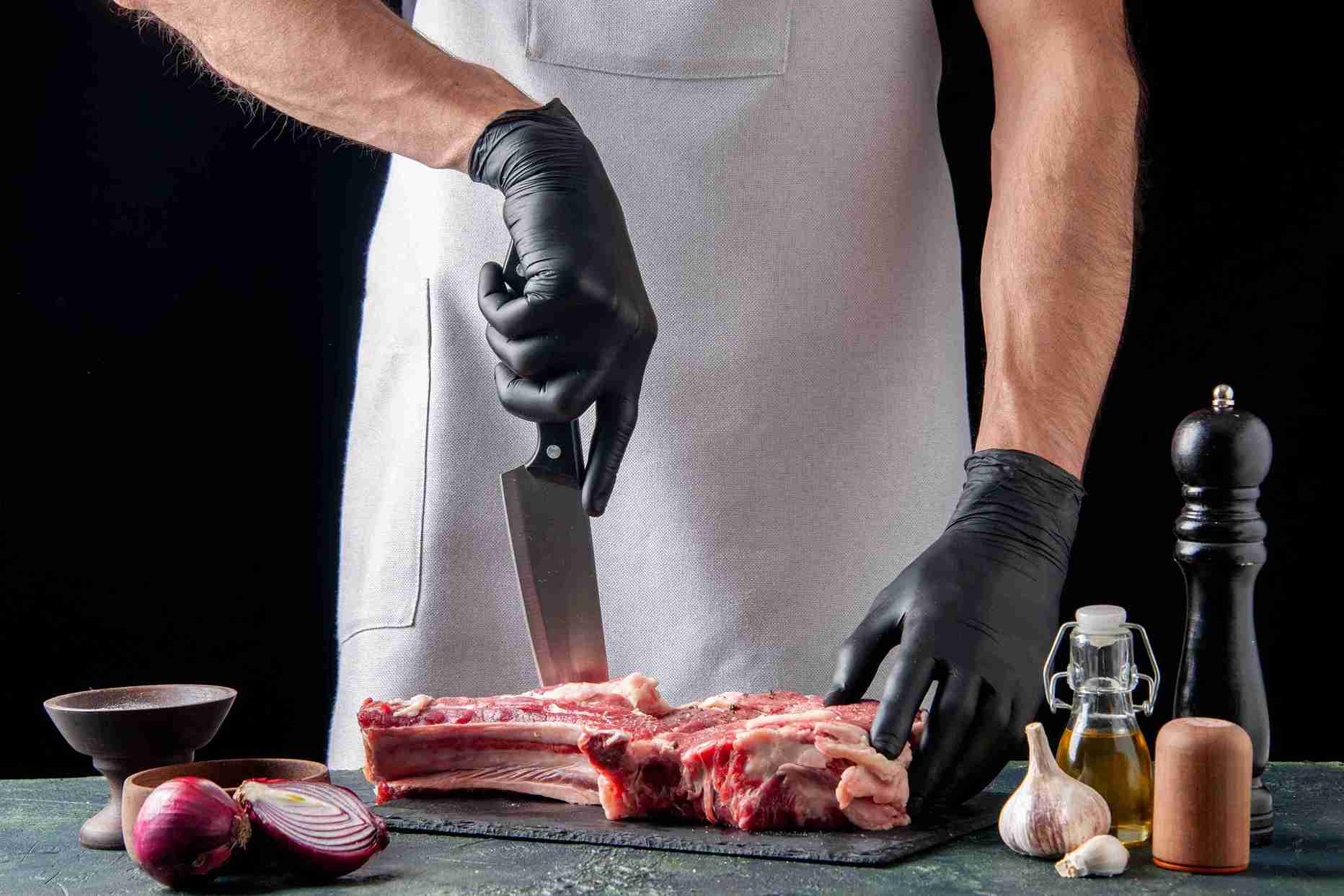 SHARE
SHARE
Get to Know Butchers Beyond Just Meat Cutting: A Complete Look at Their Roles and Responsibilities
Sovia
A butcher is an essential profession in the food and beverage industry, particularly in meat processing.
The main duties of a butcher include cutting, preparing, and processing meat so that it's ready for cooking or sale.
Without the help of a butcher, chefs could struggle as the meat would not be processed with the correct techniques.
In Indonesian, a butcher is also known as a tukang jagal or a professional meat cutter. Butchery is a profession that requires specialized skills, not just randomly cutting meat.
If you want to learn more about this profession, let's dive into the details in this article!
What is a Butcher?
A butcher is a profession directly involved with the processing and preparation of meat in the kitchen. A butcher’s job goes beyond simply cutting meat; it’s much more complex.
A butcher is responsible for preparing various types of meat, such as beef, chicken, goat, and fish.
They know how to cut meat with specific techniques to meet the needs of the dish being prepared.
This profession typically works in restaurants, supermarkets, or meat shops that have meat processing facilities.
In these places, butchers play a vital role in maintaining the quality and presentation of meat to ensure it remains optimal.
The duties of a butcher are not to be taken lightly. They must possess special skills and undergo intensive training to ensure precision in meat cutting.
At a buffet with a grill menu, the butcher plays an important role in the meat presentation. They know which cuts are most favored by guests and how to serve them in an appealing way.
So, butchers are the key figures behind delicious and high-quality meat dishes. Their expertise ensures every piece of meat looks its best on the dining table.
Read more: Get to know what a sous chef is, this is his important role in restaurant success
Duties and Responsibilities of a Butcher
Source: freepik.com
A butcher has various important tasks to ensure smooth kitchen operations in a restaurant. Here are the tasks and responsibilities that must be carried out:
1. Preparing Raw Materials
A butcher is responsible for processing newly arrived meat from suppliers. The raw materials must be processed properly so they are ready to be cooked by the kitchen team.
2. Quality Control of Ingredients
Ensuring the quality of the ingredients is fresh and meets standards is essential. A butcher must regularly check the freshness, appearance, and texture of raw materials.
3. Managing Stock and Inventory
A butcher needs to monitor the stock of raw materials available. They must communicate with suppliers to ensure the availability of enough raw materials.
4. Maintaining Freshness of Ingredients
Ensure that the stored ingredients remain fresh and are tightly sealed. A butcher must organize the storage properly to prevent spoilage or contamination.
5. Customer Service
In addition to working in the kitchen, a butcher also interacts directly with customers. They offer advice on the right cuts of meat based on customer needs.
6. Inventory Reporting
A butcher must prepare reports on missing or spoiled ingredients. These reports are then submitted to the Kitchen Admin or Leader Chef.
7. Responsibility for Processed Ingredients
Butchers must ensure that the ingredients to be processed or sold are in fresh, good condition. If damaged materials are found, corrective action must be taken immediately.
8. Maintaining Cleanliness in the Work Area
A butcher is responsible for maintaining cleanliness in the kitchen and the tools used. This also includes cleaning the freezer according to the company's schedule.
9. Preparing Kitchen Tools
Before the restaurant opens, a butcher must inspect and prepare all the tools needed. This ensures everything is ready for use.
10. Tool Maintenance
A butcher is responsible for maintaining the tools used, such as knives and cutting machines. Cleanliness and maintenance of the tools are crucial to ensure the quality of work.
Skills Needed by a Butcher
Becoming a butcher is not just about cutting meat. This profession requires precision, technical skills, and a deep understanding of each meat cut. Meat is not something that can be treated carelessly.
Each type and part of the meat has unique characteristics that require special handling.
Therefore, it’s essential to equip yourself with specific skills to perform the job professionally and efficiently.
Here are some crucial skills you need to master if you want to become a skilled butcher:
1. Understanding Meat Types and Cuts
Each type of meat has different characteristics and handling methods. Therefore, it’s essential to understand the different cuts of meat thoroughly.
This knowledge will help you determine the correct cutting techniques for each type of meat, such as distinguishing how to process lamb shoulder versus lamb leg.
With this understanding, you can serve meat cuts that meet the customer’s needs, whether for direct consumption or sale.
2. Accurately Determining Meat Portions
The ability to determine the correct meat portions is vital for work efficiency and customer satisfaction.
With this skill, you can manage stock more wisely and avoid wastage. Additionally, you can serve cuts in various sizes as requested, whether large, medium, or small.
This skill not only supports smoother operations but also increases the sale value of the meat you process.
3. Skilled in Using and Maintaining Knives
Knives are a butcher’s primary tool, so mastering their use is crucial. You need to know the different types of knives and their functions, such as a filleting knife to separate meat from bones.
Not only must you be able to use them, but you must also know how to maintain and sharpen the knives to keep them safe and effective. Sharp knives make the job faster, and the cuts will be cleaner and more precise.
Read more: 5 Important Kitchen Management Tips for Beginner Restaurant Owners
Conclusion
Being a butcher means much more than just cutting meat. It’s a profession that requires skill, precision, and dedication to maintaining the quality of food.
In the food industry, butchers are a vital part of ensuring that each dish served is of the highest quality.
Are you looking for a supply chain management system to simplify all processes, from purchasing to the delivery of raw materials like meat? ESB Goods is here as a solution.
With an integrated system, ESB Goods connects directly with trusted suppliers, provides backup suppliers, and offers automatic payment options via a payment gateway.
Additionally, funding programs through ESB Capital are available.
All of this is designed to help the culinary business grow more efficiently and professionally.
Contact the ESB Team and consult your business now!
 SHARE
SHARE





